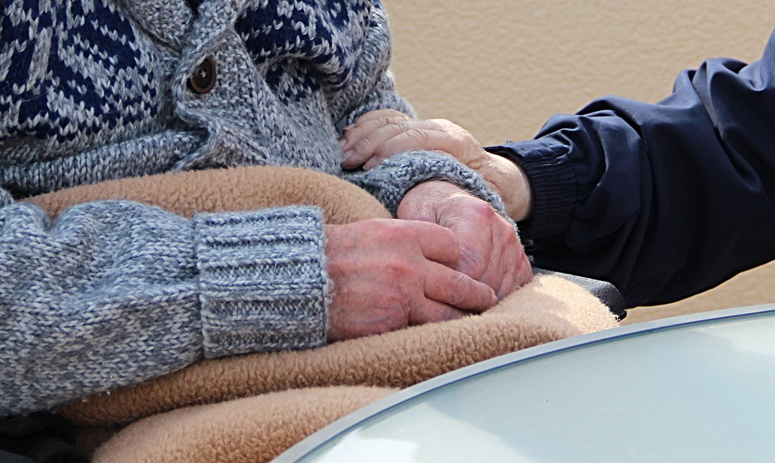.Living through the COVID-19 pandemic in a nursing home, confined to her room with no visitation or organized activities, “was a nightmare,” Rose Marie Pardo recalled Tuesday.
But Pardo described the four certified nursing assistants who care for her at the Hancock Park Rehabilitation and Nursing Center in Quincy as her “dream team.”
Pardo told the Legislature’s Health Care Financing Committee she contracted COVID-19, spending two weeks in a dedicated unit, and said her roommate “died a terrible death” from the virus. She said the CNAs “put their lives on the line” to care for their patients and “went through hell day after day.”
“These CNAs provided care, comforted our fears, listened to our needs, and they were there when no one else could be there,” she said. “I am grateful for my dream team every day, but especially now, after the COVID-19 pandemic. It is time to recognize the commitment and dedication of the essential CNAs who work in our nursing homes.”
Speaking alongside Hancock Park administrator Adam Ernst, Pardo was one of a handful people to testify by video in support of bills dubbed the Nursing Home Quality Jobs Initiative, which were filed by Sen. Julian Cyr and Rep. John Lawn, the committee’s House chair.
The bills (H 1287, S 759) would require MassHealth to “annually fund a living wage rate add-on for direct care staff of licensed nursing homes,” including CNAs and housekeeping, laundry, dietary, plant operations and clerical staff. They would also create a grant program for supervisory and leadership training for nursing facility workers, an “extended care career ladder grant program” and a tuition-reimbursement program for CNA training.
Sen. Harriette Chandler and Rep. Tom Golden also filed bills (S 742, H 1268) that aim to stabilize nursing home finances. Those bills, Massachusetts Senior Care Association President Tara Gregorio said, seek to modernize the state’s nursing facility funding formula to better reflect the current cost of resident care, including investments in the workforce.
“Today, nursing facilities have an urgent need to hire 6,000 nurses and CNAs,” Gregorio said. “Nursing facilities are simply unable to compete for job applicants, primarily due to their inability to offer competitive wages. As a result, 40 percent of direct care staff are working overtime, and over half of the commonwealth’s nursing facilities are denying or limiting admissions due to what many have described as the worst staffing crisis in our history.”
Dr. Larissa Lucas of North Shore Physicians Group, a geriatric team that provides care at multiple nursing facilities, said nursing home staffing levels were “nearing a crisis point” before the pandemic, “and this crisis has now fully arrived.”
“This is a problem that is directly related to government funding of nursing home care,” she said.
Along with the nursing home bills, the committee is also weighing legislation that addresses the rate-setting process for home health and home care services, again with an eye on recruiting and retaining staff.
In written testimony, Mass Home Care Executive Director Lisa Gurgone said bills from Sen. Patricia Jehlen and Rep. Carmine Gentile (S 774, H 737) would establish a new, biennial process for setting MassHealth home health services rates.
She said that direct-care workers are paid close to the minimum wage, and that workforce challenges have been longstanding in the long-term services and support industry.
“Our failure to keep pace with the true inflationary impacts of the home and community-based services system is slowly but surely deteriorating our delivery capacity,” Gurgone wrote.
Jehlen said there is a direct-care workforce shortage “across the continuum, from home care to assisted living to nursing homes.” Meanwhile, she said, demand for home care is increasing as people age.
“We can do all kinds of things to get people to choose home care as a profession, and we should, but if home care pays less than Burger King, and you have to travel between jobs with erratic and unpredictable schedules, we can’t really expect people to enter this workforce,” she said.
(Copyright (c) 2024 State House News Service.

